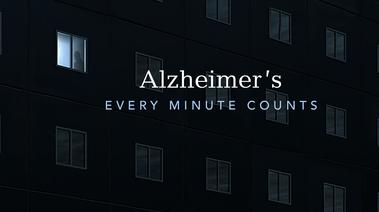Forbes magazine calls Alzheimer’s the most costly disease in medical history.
Due to the length of time people live with the illness and need care, it’s the most expensive medical condition in the U.S. and perhaps the most costly disease in medical history. Future costs for Alzheimer’s threaten to bankrupt Medicare, Medicaid and the life savings of millions of Americans.
My grandmother had Alzheimer’s disease as did her twin sister. Twenty five years ago, I remember my mother’s challenge to work full-time, take care of us, and also relocate my grandmother from Philadelphia, where she had lived her entire life, to Southern California where we resided at the time. She found an assisted living that my grandmother enjoyed for about two years until her level of care was too high for the facility to manage. And we had it relatively “easy” … my grandmother didn’t wander (much), she wasn’t combative, and fortunately she didn’t outlive her resources that paid for her care.
Many of our clients have Alzheimer’s or a dementia related diagnosis. Medicare doesn’t pay for the twenty-four hour caregiver support they require or the $6,000+ a month dementia care facility where they reside. (A good Long Term Care policy can help). Medicare also doesn’t pay moving expenses when a facility reports that they can no longer take care of our client because their level of care is too much work for their staff or they don’t have enough staff or they don’t have the skill set necessary to manage a resident with Alzheimer’s. We are hyper-aware of the cost of care required with an Alzheimer’s or dementia diagnosis as we carefully watch each client’s resources dwindle as they pay for their end of life care, whether it is two years, ten years or potentially more.
The documentary film Alzheimer’s: Every Minute Counts will be premiering on PBS tonight. Just the preview made me tear up. I strongly encourage you to watch this documentary. Hopefully it won’t get lost amidst the news of other crises the world is currently facing.
Dr. Rudolph Tanzi, Professor of Neurology at Harvard Medical School, is interviewed in the film. He says, “I’m shocked that people are not panicked about what this disease is going to do to the country or to their families…”
If you look at the top ten diseases, of how people die, Alzheimer’s is the only one where there are no survivors, and there is nothing we can do to prevent it or stop the progression of the disease.
We get panicked phone calls every week from loved ones, from caring neighbors, from those who are shouldering the burden of care for someone suffering from Alzheimer’s. We are here to help.


